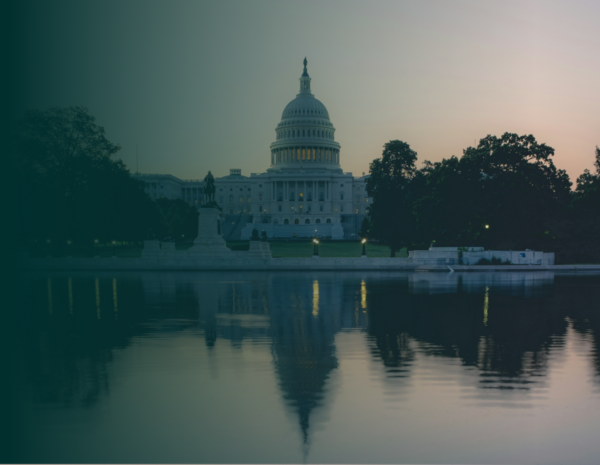Discovery is a massive component of a successful legislative tracking effort. Distilling the tidal wave of incoming legislation into a manageable flow for analysis and action is necessary to ensure your team can effectively act on all legislation that matters to you.
At Plural, we work with our clients to build saved searches that run constantly. When a new bill of importance is introduced, our clients are updated in real-time. The advocacy and research work that our clients use Plural for varies widely. However, they share a core desire for discovery: show me 100% of the bills I care about, and as few extraneous bills as possible. Plural is tasked with cutting down the haystack in the needle-in-a-haystack analogy.
The Plural Solution for Legislative Discovery
Our solution for this seemingly universal problem is why many advocacy and government affairs teams choose and stick with Plural. In short, it includes three interventions that we feel we are uniquely qualified to complete:
- Plural has an unprecedented trove of high-quality, cleanly organized legislative data. This starting point ensures that we have access to what you’re looking to find.
- Plural is designed to aid intelligent discovery. Our users can navigate that trove of data easily, via our intuitive advanced search features. This includes boolean logic capability, AI-driven filters including our momentum indicator and bill topics, and bill recommendations.
- Our research and customer experience teams take a hands-on approach to understanding client issue areas and maximizing the effectiveness of their discovery processes in Plural. We are always available to brainstorm search terms and to set up new workflows, and our extensive experience solving client discovery needs contributes to our broad understanding of public policy as a whole.
The most effective searches are highly targeted at a specific policy type and take advantage of all of Plural’s search capabilities. Let’s walk through how we build an effective nationwide search using boolean logic in Plural.
Use Case: Finding Legislation Regulating Children’s Exposure to Social Media Algorithms
Throughout the 2024 legislative sessions, we’ve seen a significant focus on regulating social media companies and their products. In particular, children’s use of these technologies has been a key focus. This trend was sparked by:
- A growing digital privacy movement
- Skepticism towards social media companies including TikTok
- The rapid advancement of artificial intelligence and machine learning technologies
In recent months, lawmakers across the country have introduced legislation that would require social media companies to limit the use of algorithms used to display content in a way that increases engagement. Critics argue these algorithms promote unhealthy social media behaviors. California’s SB 976 has been the subject of multiple hearings this month. The bill seeks to increase parental influence over minors’ accounts and restrict certain activities during nighttime and school hours. Meanwhile, New York’s Stop Addictive Feeds Exploitation (SAFE) for Kids Act defines and prohibits the use of “addictive feeds” for minors. The Act was considered last year and could see another attempt at passage before session ends in June.
These bills have garnered interest from social media companies, education officials, advocates, and parents. As such, it’s a good use case for us to see how we can craft a nationwide search to isolate this type of legislation and avoid overwhelming search results.



Crafting Our Search
Identifying a clear and concise definition of the legislation you’re looking for is a helpful first step in building a search. Of course, most teams will end up with many searches that together cover their policy agenda. Here, however, we’re focused on one which we can define as “legislation that would require social media companies to restrict access to or change content display for minors.”
Next, break this definition down into digestible parts that we can include in our search. Keep in mind, our goal is to find and use language that is always included in the bills we are looking for, but rarely used in irrelevant legislation. In this example, we know that we want to isolate three things within the legislation:
- It applies to social media applications or companies
- It applies to children
- It focuses on algorithmic content display, “addictive feeds,” or restricting access
Boolean logic will let us search for legislation that includes each of these units via multiple terms using the “OR” clause. We will also be able to connect these three parts via the “AND” clause. Let’s review.
It applies to social media applications or companies.
The term “social media” shows up in a lot of legislation — we see 1,552 bills in active legislative sessions. However, it’s also quite descriptive and will do a good job of isolating those bills that deal with social media companies, platforms, and applications. We can start our search with “social media.”
It applies to children.
Kids are great! They’re also the subject of a ton of legislation across all types of topics, from education, to healthcare, to criminal justice. What we are aiming to do with this section of our search is to limit those 1,552 social media bills down to only those that contain provisions related to children. We can do that by connecting a few typical ways that children are referenced in legislation. An “OR” clause, e.g. “Minor” OR “Minors” OR “Children” OR “Kids” should cover our bases. When we combine that with our first aspect of our search, we get “Social Media” AND (“Minor” OR “Minors” OR “Children” OR “Kids”. This search returns 683 results. Good progress!

It focuses on algorithmic content display, “addictive feeds”, or restricting access.
These are fairly technical terms that likely won’t show up in many unrelated bills. Let’s add “Algorithm” OR “Algorithmic” OR “Addictive” OR “Restrict access” to our search. Doing so will further distill the results to only bills that relate to children’s use of social media and focus on these aspects of social media use.
Our search now reads ‘“Social Media” AND Minor” OR “Minors” OR “Children” OR “Kids AND “Algorithm” OR “Algorithmic” OR “Addictive” OR “Restrict Access”‘. It now returns 102 results, including both the California bill and the New York bill mentioned above! Not bad for a nationwide search on a hot-button issue.
Using Boolean Searching for Your Legislative Discovery
While the specifics of this example may not apply to your use case, everyone can benefit from mowing down some of the haystack in their search. This is work we love to partner with you on, so don’t hesitate to reach out today!
Get Started With Plural
Regardless of your policy focus, Plural helps you get and stay ahead in the legislative landscape. With Plural, you’ll:
- Access superior public policy data
- Be the first to know about new bills and changes in bill status
- Streamline your day with seamless organization features
- Harness the power of time-saving AI tools to gain insights into individual bills and the entire legislative landscape
- Keep everyone on the same page with internal collaboration and external reporting all in one place
Create a free account or book a demo today!
More Resources for Public Policy Teams
Key Benefits of AI for Lobbying & Advocacy
Want to be able to explain the benefits of artificial intelligence for lobbying and advocacy? Everyone is talking about AI. And we get it, it’s not simple to understand. But as an AI-powered organization, Plural is here to help you get the most out of advancements in AI to make your job as a policy […]
2025 Legislative Committee Deadlines Calendar
Staying on top of key deadlines is manageable in one state, but if you’re tracking bills across multiple states, or nationwide, it quickly becomes overwhelming. That’s why we created the 2025 Legislative Committee Deadlines Calendar. Stay ahead of important dates and download our calendar today. Get started with Plural. Plural helps top public policy teams get […]
End of Session Report: Florida 2024 Legislative Session
The 2024 Florida legislative session saw significant activity in the realm of insurance and financial services, reflecting key themes of consumer protection, market stability, and regulatory modernization.



